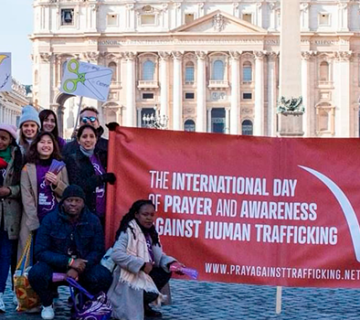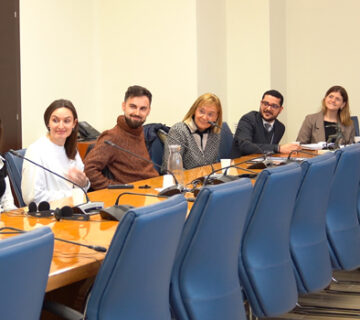 “At 80 years of age and in the 15th year of his pontificate, Paul VI may look back on his pontifical work, amid social and intellectual turmoil, as a rejuvenation process of the Catholic Church. […]
“At 80 years of age and in the 15th year of his pontificate, Paul VI may look back on his pontifical work, amid social and intellectual turmoil, as a rejuvenation process of the Catholic Church. […]
Pope Montini has received the Second Vatican Council’s message to ‘update’ itself in order to act against the frenzy of the “death of God,” “irreligious Christianity,” and archaic conservatism, a work that entails patience, foresight, courage, updating of the main pontifical institutes and the creation of new dicasteries and services, among which are the “Iustitia et Pax” and “Pontifical council for the laity.”
These and other universal organisations trigger a growing cooperation of bishops and clergy, religious monks and nuns, and laymen and laywomen, in a sense of ecclesiastic renewal: which sprouts from a new communitarian spirit, and fruit of evangelical love which puts an end to individualism and religious classism, and unites the people in the parishes, and local and world institutions at the level of the Church and society in order to fulfill God’s will on earth as in heaven. All of these remind us that the Christian follows God’s will whether in prayer or at work.
The Fathers of the Church considered the faithful in prayer, also when they carry out God’s will in all their undertakings. This is why social action – service for the common good – if performed with one’s mind turned towards our Father in heaven, acquires a characteristic and outcome of authentic religiosity. Because of this, when speaking to a group of bishops from Cuba, Paul VI reminded them that the Church continually invites the faithful to be “new men” in justice, truth, and charity, so that it can educate the social conscience of the faithful, favour active cooperation towards the good, teach them to overcome their own egoism and never resign themselves to being “inferior citizens.”
This is the inspiration to stimulate a social reform, the dawning of a “new world,” that the young G. B. Montini had foreseen ever since those years when he worked for the Catholic paper of Brescia, “La Fionda,” where he advocated a free school of thought to counter the newborn fascism.
With such perspectives, broadness of mind and modernity which explain the development of Christian social movements, and which even non-religious sociologists acknowledge, the Pope reminded the Diplomatic Corps of the most audacious principles of equality regardless of origin or race, in the exercise of religious and civil rights and in condemning racism, torture and all violence towards political opponents. The Pope’s interventions manifest that truth which even we, Catholics, forget: that is, that religion is life, that God is life […].
Love: central theme of the Holy Father’s life and work; the central themes of Christianity are the creation and redemption. He has with love, brought closer to the church, individuals and multitudes, separated churches and hostile states. And in the field of ecumenism, his activities in silence rather than acclaimed, have in fact led to the return of churches, for which we comprehend why Athenagoras in a prophetic and familiar way, called him: Paul the second.”
(Excerpt of: Paul VI the Pope of the Council by Igino Giordani, “Città Nuova,” 10.7.1978, p. 26.)


 Italiano
Italiano Español
Español Français
Français Português
Português



No comment